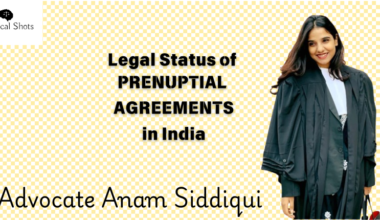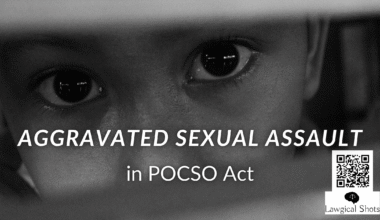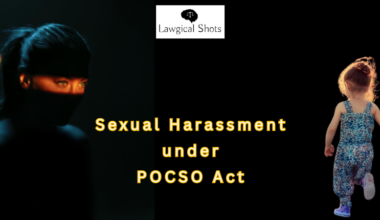There is a famous dialogue which Hindi speaking Indians will be heard saying quite often – “Apni Izzat toh sabko pyaari hoti hai ”. While the right to reputation is integral to any person, there is a legal provision which helps protect against harm to reputation, under the criminal laws. This means that if someone causes damage to the reputation of another, he can be jailed. So here, we are discussing the law regarding harm to reputation under the new criminal laws, i.e., defamation under BNS – Bharatiya Nyaya Sanhita, 2023. Join in for this roller coaster ride, where you encounter the law as it is, and a simplified version of what the law laid in a particular clause, sub-section, exception or explanation.
Defamation under IPC
Right against harm to reputation is not something newly introduced through the recently enforced criminal laws, but has been there since years. Section 499 of the Indian Penal Code, 1860 provided for what constitutes defamation, Section 500 of IPC laid the punishment for defamation, and Sections 501 – 502 laid additional aspects related to printing and selling defamatory material.
Defamation under BNS
As compared to defamation under IPC, the provision under BNS combines Sections 499 to 502 into one. The numbers may have changed, but the essence of the provision remains the same. While there were debates regarding removal of defamation from criminal laws, the recent Law Commission Report had negated the same, and the effect has been implemented in BNS as well, since criminal defamation remains an offence. The criminal law regarding harm to reputation and defamation under BNS has been dealt with in detail hereunder.
Also read – Hate Speech under Election Law in India
Section 356 of BNS, 2023
Section 356 of the Bharatiya Nyaya Sanhita, 2023 lays the criminal provision regarding defamation in India. While IPC had separate sections for definition and punishment for defamation, BNS has them combined. Since community service has been introduced as an additional punishment under the new criminal laws, punishment for defamation under BNS also includes the same along with imprisonment and fine. The provision for harm to reputation under BNS is as follows, and we have added comments to each paragraph to explain the legal text in simple words:
356. Defamation:
(1) Whoever, by words either spoken or intended to be read, or by signs or by visible representations, makes or publishes in any manner, any imputation concerning any person intending to harm, or knowing or having reason to believe that such imputation will harm, the reputation of such person, is said, except in the cases hereinafter excepted, to defame that person.
Comment: Based on this definition of defamation under BNS, anything said or written or gestured in a way as to accusing someone, which may harm the reputation of another, is defamation. So when someone says that a particular person is a lier, or is not reliable, it could mean defaming that person under the provision. While this part makes up most of what defamation is, exceptions and explanations apply as filters to decide what all is and is not defamatory.
Explanation 1 — It may amount to defamation to impute anything to a deceased person, if the imputation would harm the reputation of that person if living, and is intended to be hurtful to the feelings of his family or other near relatives.
Comment: It means that even if a person is dead and some defamatory material is said or published against that person, it would be defamation under Section 356 of BNS, if it would constitute defamation for someone alive and has the tendency to hurt the feelings of family or close relatives. It clarifies that even when the person is gone, his/her right to reputation remains.
Explanation 2 — It may amount to defamation to make an imputation concerning a company or an association or collection of persons as such.
Comment: Since a company is a legal person, anything defamatory against a company is an offence under BNS, including an association and a collection of persons, such as a community.
Explanation 3 — An imputation in the form of an alternative or expressed ironically, may amount to defamation.
Comment: While words said or written straight may depict defamation, so can satire and ironical expression. Thus, alternative suggestions or ironical expression is not an exception to defamation under BNS, if it may result in harm to reputation.
Also check – A Duel Between Strict and Absolute Liability
Explanation 4 — No imputation is said to harm a person’s reputation, unless that imputation directly or indirectly, in the estimation of others, lowers the moral or intellectual character of that person, or lowers the character of that person in respect of his caste or of his calling, or lowers the credit of that person, or causes it to be believed that the body of that person is in a loathsome state, or in a state generally considered as disgraceful.
Comment: While there is a lot to say in explanation 4 to Section 356 of BNS, the expression says that the harm to reputation should be express. If there is no impact on the reputation of the person, there is no defamation.
Exception 1 — It is not defamation to impute anything which is true concerning any person, if it be for the public good that the imputation should be made or published. Whether or not it is for the public good is a question of fact.
Comment: Defamation, is saying something against the reputation which is not factual. So if a person calls another a thief, while that person actually stole something as proved, it would not be defamation. The question of whether it actually happened or not remains with proving the facts.
Exception 2 — It is not defamation to express in good faith any opinion whatever respecting the conduct of a public servant in the discharge of his public functions, or respecting his character, so far as his character appears in that conduct, and no further.
Comment: The provision here says that in the case of a public servant, anything said in good faith regarding his public duties or character based on conduct would not constitute defamation.
Exception 3 — It is not defamation to express in good faith any opinion whatever respecting the conduct of any person touching any public question, and respecting his character, so far as his character appears in that conduct, and no further.
Comment: If a person’s character is apparent in his conduct and something is said against the person, confined to a public question, that is an exception to criminal clutches of defamation.
Exception 4 — It is not defamation to publish substantially true report of the proceedings of a Court, or of the result of any such proceedings.
Comment: A true reporting of Court proceedings or decision of the Court is not defamation. So if a person has been denied bail, and Court proceedings involved remarks on evidence, depicting that person’s guilt, that would not be defamatory, if the person is later proven innocent.
Explanation — A Magistrate or other officer holding an inquiry in open Court preliminary to a trial in a Court, is a Court within the meaning of the above section.
Comment: Just like Court proceedings, the presiding officer enjoys the exception mentioned above.
Exception 5 — It is not defamation to express in good faith any opinion whatever respecting the merits of any case, civil or criminal, which has been decided by a Court, or respecting the conduct of any person as a party, witness or agent, in any such case, or respecting the character of such person, as far as his character appears in that conduct, and no further.
Comment: The exception lays that nothing would constitute defamation in a Court case if someone comments on the same in good faith, whether it is the Court’s decision or conduct of a person.
Exception 6 — It is not defamation to express in good faith any opinion respecting the merits of any performance which its author has submitted to the judgment of the public, or respecting the character of the author so far as his character appears in such performance, and no further.
Comment: Opinions on a performance which the author left to the judgment of audience, is excluded from the confines of defamation law.
Explanation — A performance may be submitted to the judgment of the public expressly or by acts on part of the author which imply such submission to the judgment of the public.
Comment: If an author leaves the performance or a character to the judgment of public, it would not be defamation.
Exception 7 — It is not defamation if a person having over another any authority, either conferred by law or arising out of a lawful contract made with that other, to pass in good faith any censure on the conduct of that other in matters to which such lawful authority relates.
Comment: The exception gives relaxation to a persons in authority or in contractual relation, for expressing disapproval for the matters which the lawful authority relates to.
Exception 8 — It is not defamation to prefer in good faith an accusation against any person to any of those who have lawful authority over that person with respect to the subject-matter of accusation.
Comment: If an accusation is made in good faith by a person in authority for the aspect which has been authorised, it is excluded from defamatory charges.
Exception 9 — It is not defamation to make an imputation on the character of another provided that the imputation be made in good faith for the protection of the interests of the person making it, or of any other person, or for the public good.
Comment: If a person makes defamatory remarks in good faith for protecting the interests of a person who made such remarks or any other person, or for public good, it would not constitute defamation.
Exception 10 — It is not defamation to convey a caution, in good faith, to one person against another, provided that such caution be intended for the good of the person to whom it is conveyed, or of some person in whom that person is interested, or for the public good.
Comment: If a person makes cautionary, yet seemingly defamatory remarks to one person against another, for the good of the person conveyed to or the person interested, or in good faith, defamation is excluded in all such facts.
(2) Whoever defames another shall be punished with simple imprisonment for a term which may extend to two years, or with fine, or with both or with community service.
Comment: The sub-section lays the punishment for defamation under BNS regarding harm to reputation. It punishes with a maximum imprisonment of 2 years, with the option of imposing fine or community service.
(3) Whoever prints or engraves any matter, knowing or having good reason to believe that such matter is defamatory of any person, shall be punished with simple imprisonment for a term which may extend to two years, or with fine, or with both.
Comment: The provision punishes defamatory material printed or engraved, with imprisonment of maximum 2 years, with or without fine. It may be noted that community service is not added here.
(4) Whoever sells or offers for sale any printed or engraved substance containing defamatory matter, knowing that it contains such matter, shall be punished with simple imprisonment for a term which may extend to two years, or with fine, or with both.
Comment: For someone selling or offering to sell printed or engraved material which is defamatory, the act is punishable with imprisonment of maximum 2 years, with or without fine. Again, community service is not included as a punishment.
Punishment for Defamation under BNS
Sub-section (2) to Section 356 of BNS lays the punishment for defamation. It provides that the person guilty of defaming another is punishable with simple imprisonment of maximum 2 years, with or without fine, and with or without community service. For the two Sections of IPC which have been included in sub-sections (3) and (4), for defamation related to print or selling defamatory material, the punishment for defamation under BNS does not include community service, but retains imprisonment and fine.








